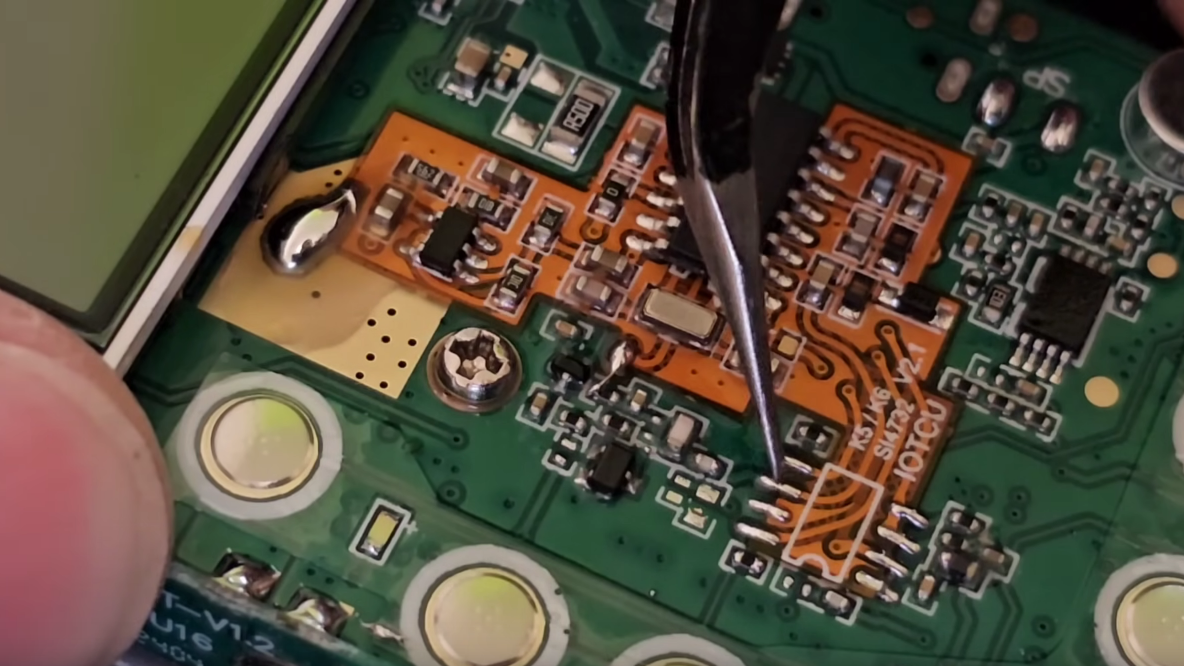OK, it’s official: the Quansheng UV-K5 is the king of hackable ham radios — especially now that a second version of the all-band hardware and firmware mod has been released, not to mention a new version of the radio.
If you need to get up to speed, check out our previous coverage of the all-band hack for the UV-K5, in which [Paul (OM0ET)] installs a tiny PCB to upgrade the radio’s receiver chip to an Si4732. Along with a few jumpers and some component replacements on the main board, these hardware mods made it possible for the transceiver, normally restricted to the VHF and UHF amateur radio bands, to receive everything down to the 20-meter band, in both AM and single-sideband modulations.
The new mod featured in the video below does all that and more, all while making the installation process slightly easier. The new PCB is on a flexible substrate and is considerably slimmer, and also sports an audio amplifier chip, to make up for the low audio output on SSB signals of the first version. Installation, which occupies the first third of the video below, is as simple as removing one SMD chip from the radio’s main board and tacking the PCB down in its footprint, followed by making a couple of connections with very fine enameled wire.
You could load the new firmware and call it a day at that point, but [Paul] decided to take things a step further and install a separate jack for a dedicated HF antenna. This means sacrificing the white LED on the top panel, which isn’t much of a sacrifice for most hams, to make room for the jack. Most of us would put a small SMA jack in, but [Paul] went for a BNC, which required some deft Dremel and knife work to fit in. He also used plain hookup wire to connect the jack, which sounds like a terrible idea; we’d probably use RG-316, but his mod didn’t sound that bad at all.
Keen to know more about the Quansheng UV-K5? Dive into the reverse-engineered schematics.
Thanks to [Sam] for the heads up on this one.
